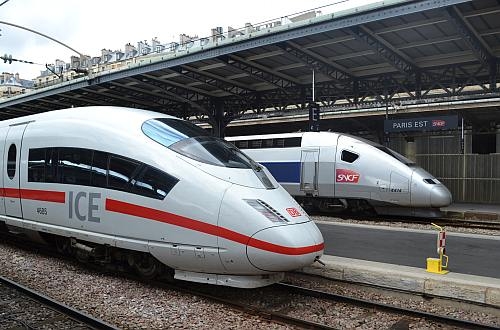In an open letter addressed to the members, the leaders state that "the FRP is an opportunity to establish the right framework conditions for competition and entrepreneurialism which is essential for the efficient provision of goods and services."
Members of the Transport Council met in Luxembourg on October 8 for the first strategic debate on the FRP's political pillar following three semesters dedicated to the technical pillar. Mr Maurizio Lupi, Italy's minister of infrastructure and transport, who was chairing the meeting under the Italian presidency of the EU, reported that the council would continue to work towards a strategic, general approach to the political pillar with a view to agreeing this by their next meeting in December.
However, with several members questioning whether market opening is the best way to make railway services more dynamic and customer-oriented, pointing out that markets vary between member states, uncertainty persists.
The industry leaders argue that with rail continuing to "stagnate and even decline in some parts of the EU and in some types of services, and the continuing reduction in choice for freight passengers," that members should adopt the provisions in the FRP. They say that abandoning or neutralising the political pillar would be a missed opportunity to tackle the following critical areas:
• the potential misuse of public money which is diverted away from much-needed infrastructure investments to support monopolistic incumbents
• establishment of passenger-friendly common ticketing platforms which allow passengers to buy tickets regardless of who is operating the train
• inefficiencies in infrastructure management including unfair capacity allocation, which undermines the provision of quality services and the ability of new entrants to survive
• unused rolling stock, paid for with taxpayers' money, which could be available for new services and operators, and most importantly
• creating a level playing field in the rail market to ensure fair competition, which includes the involvement of new entrants and private sector operators, which is essential for innovation and growth.
The document is signed by Ms Nicolette van der Jagt, director general of the European Freight Forwarders' Organisation (Clecat), Ms Julia Lamb, secretary general of the European Rail Freight Association (ERFA), Mr Denis Choumert, European Shippers Council (ESC) president, Mr Engelbert Recker, chief executive of Mofair, Mr Josef Schneider, member of the Administrative Council and secretary of the European Passengers' Federation (EFP), and Mr Ralph-Charley Schultze, director general of the International Union of Rail-Road Combined Transport (UIRR).
They add that there are many key issues in both the political and technical proposals that are interrelated and need to remain in one package if the benefit is to be derived from them. This includes the extent of separation between infrastructure managers and operators, and the establishment of "Chinese Walls" within vertically integrated railways to prevent cross-subsidisation of different business activities; requirements for competition in passenger services; greater responsibilities of the European Railway Agency (ERA); and the need for greater coordination and cooperation between European infrastructure managers.
"New entrants must be enabled and encouraged if they are to bring benefit for the sector," the leaders note. "We all want to see the rail sector develop. This requires investment, and given the pressure on state funding, it is important to encourage private sector investment to enable the railways to grow, to provide a better service, and meet the needs of the customer while keeping costs and charges to the taxpayer as low as possible."

